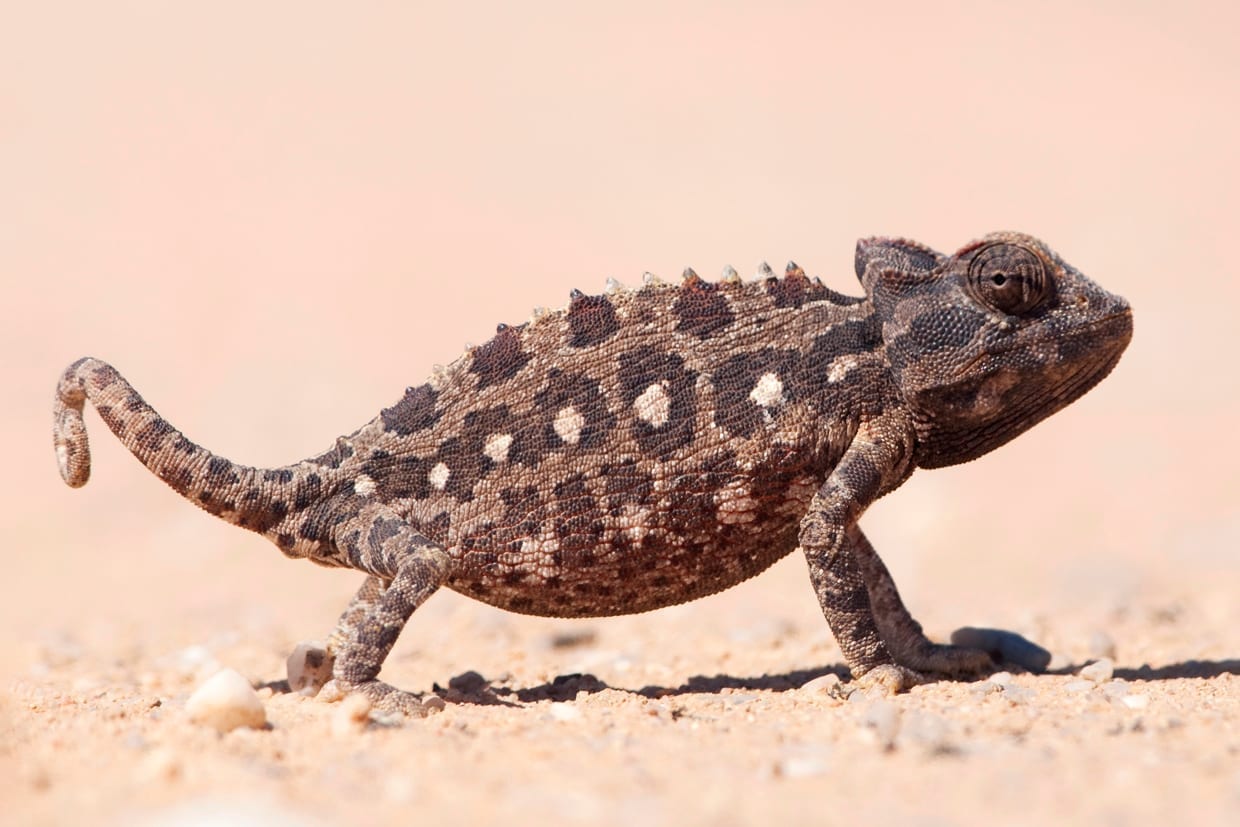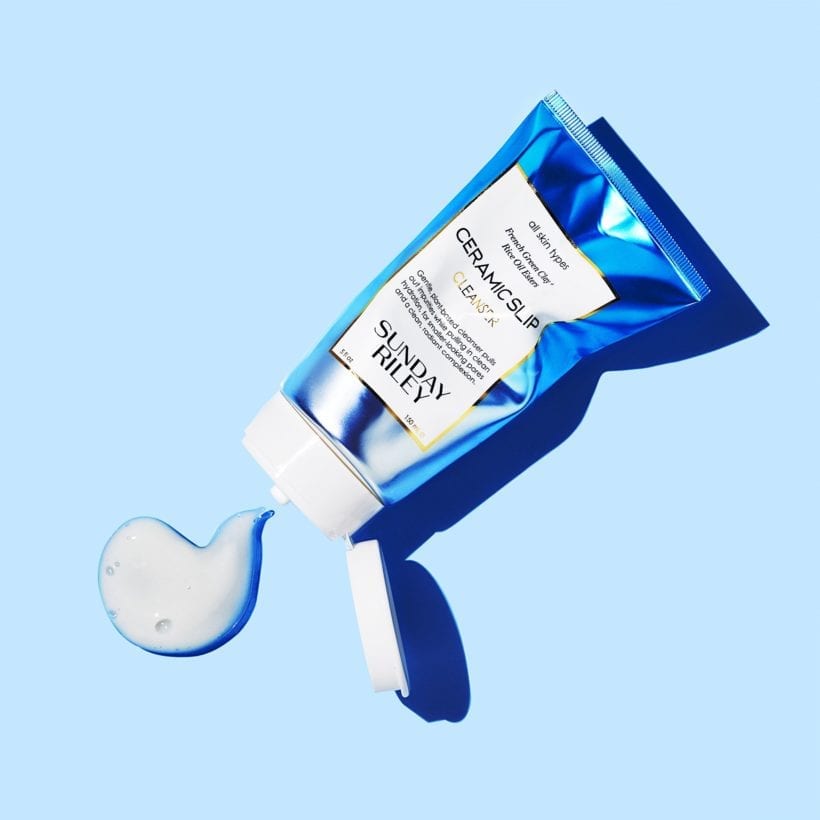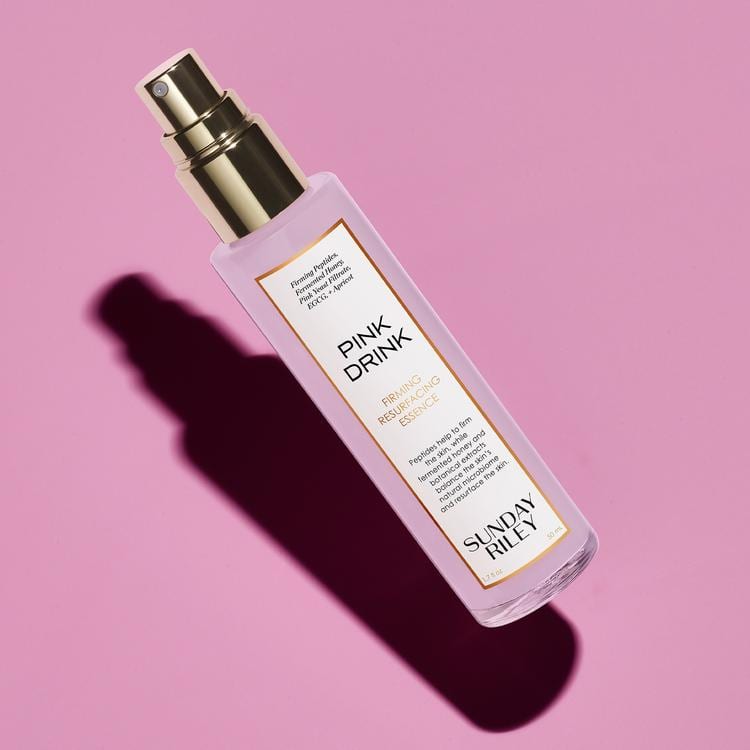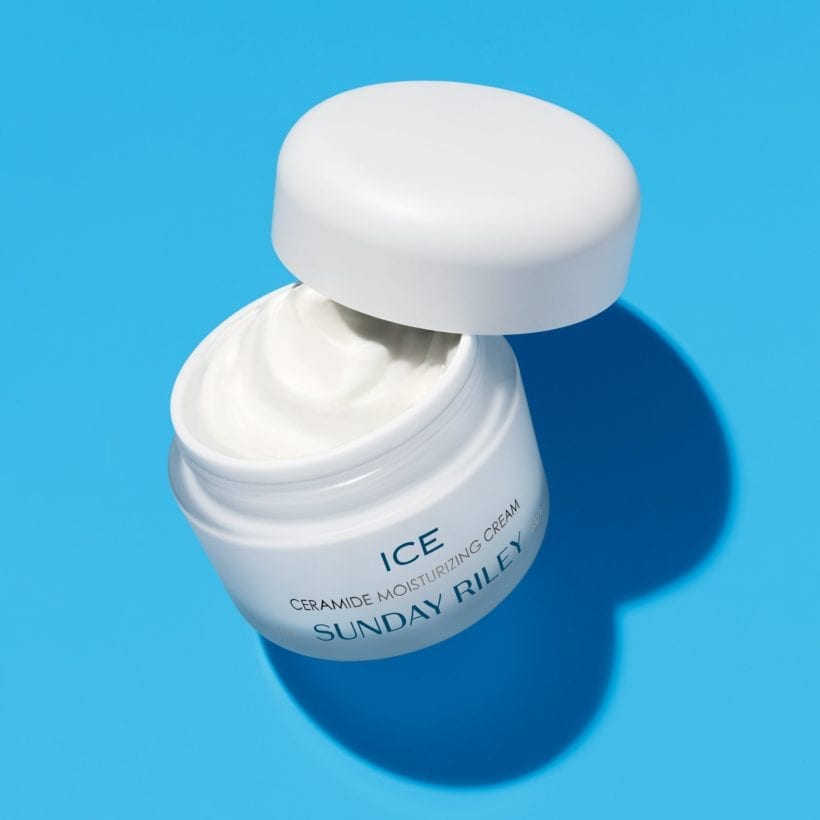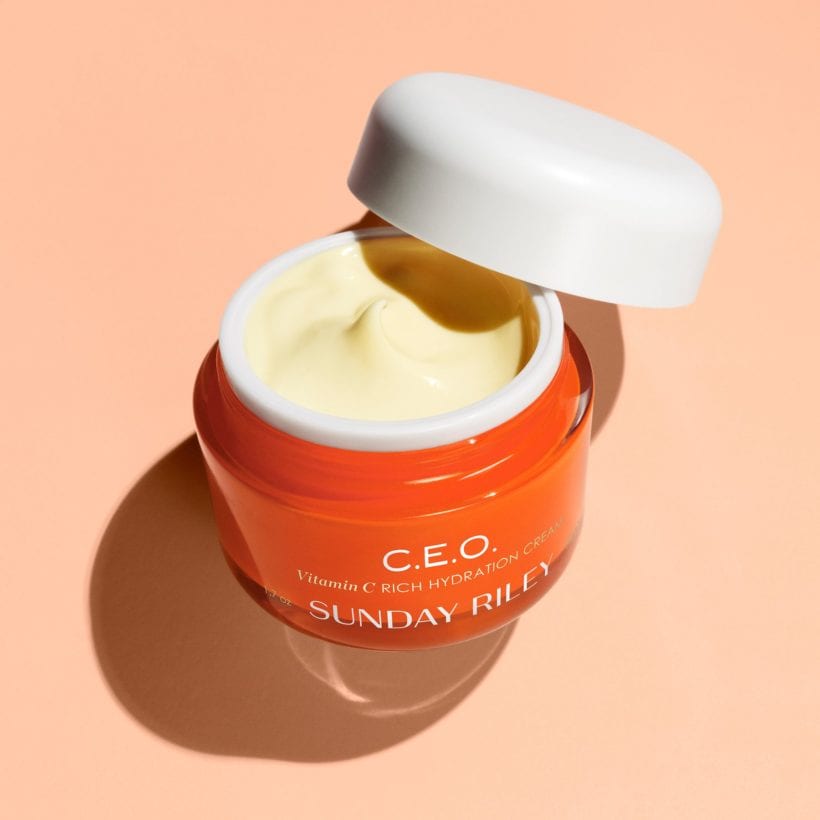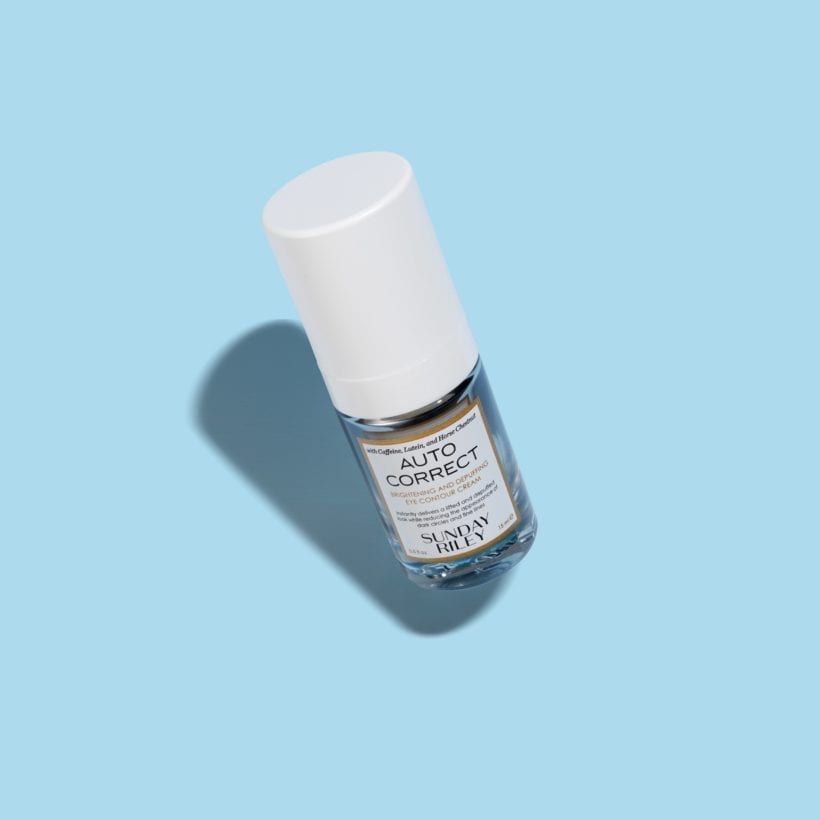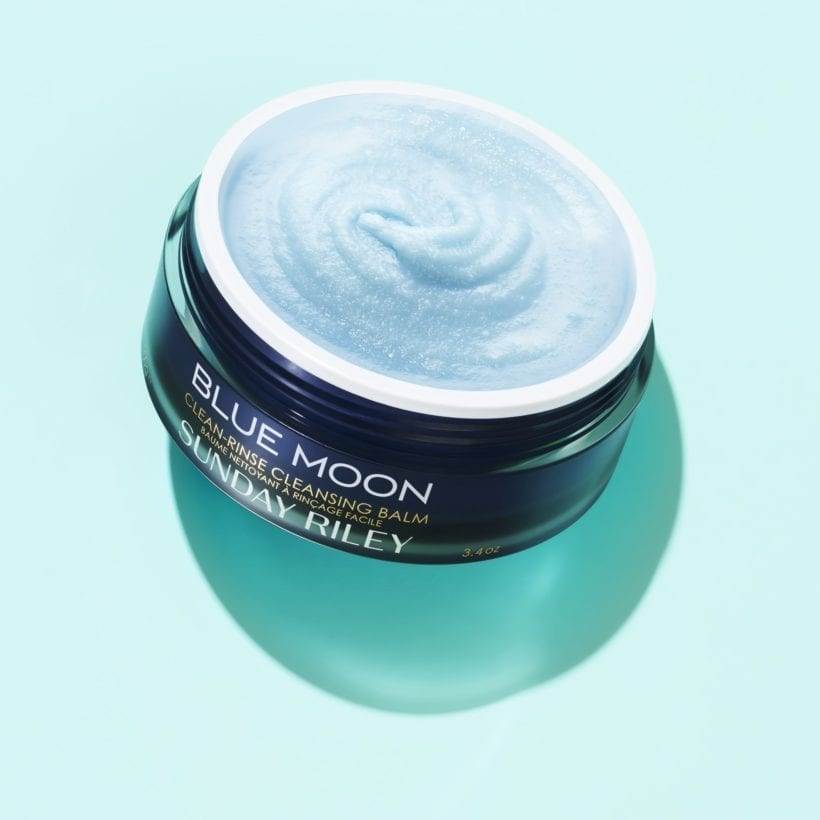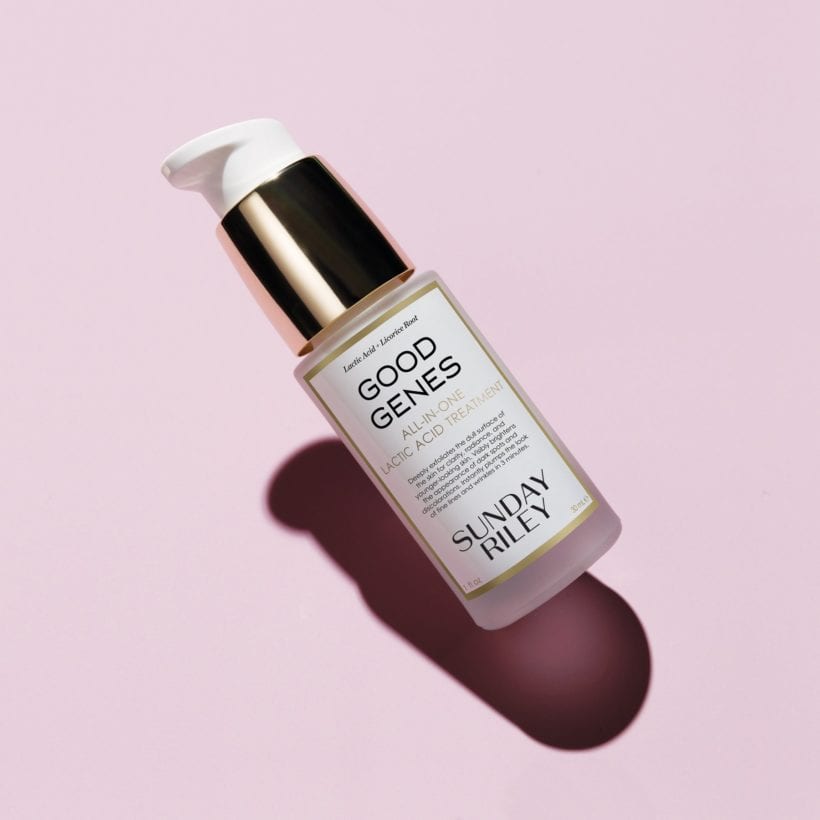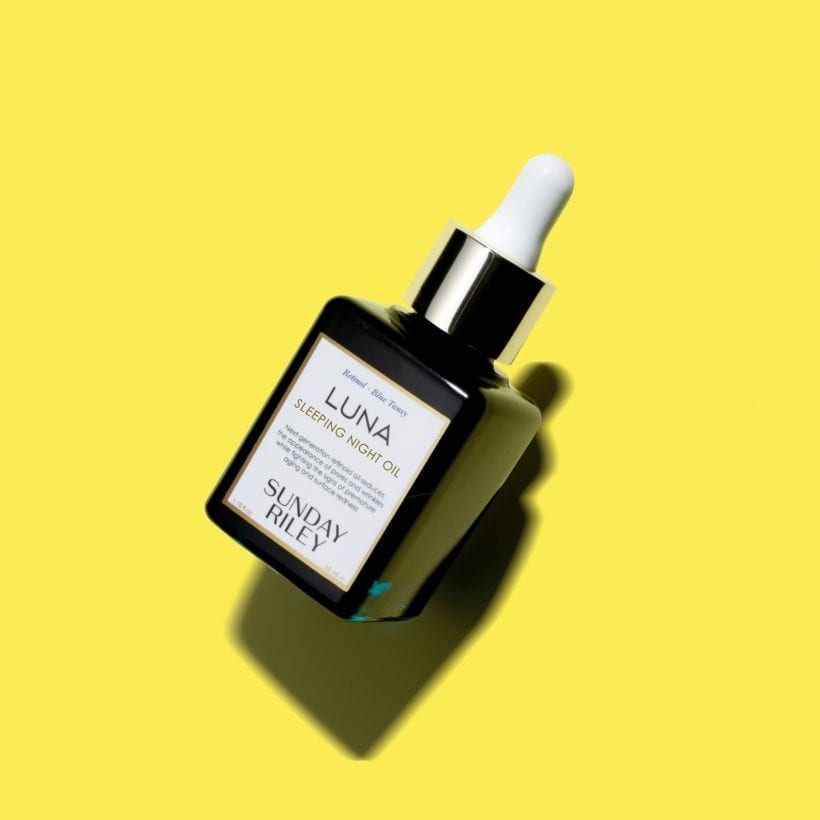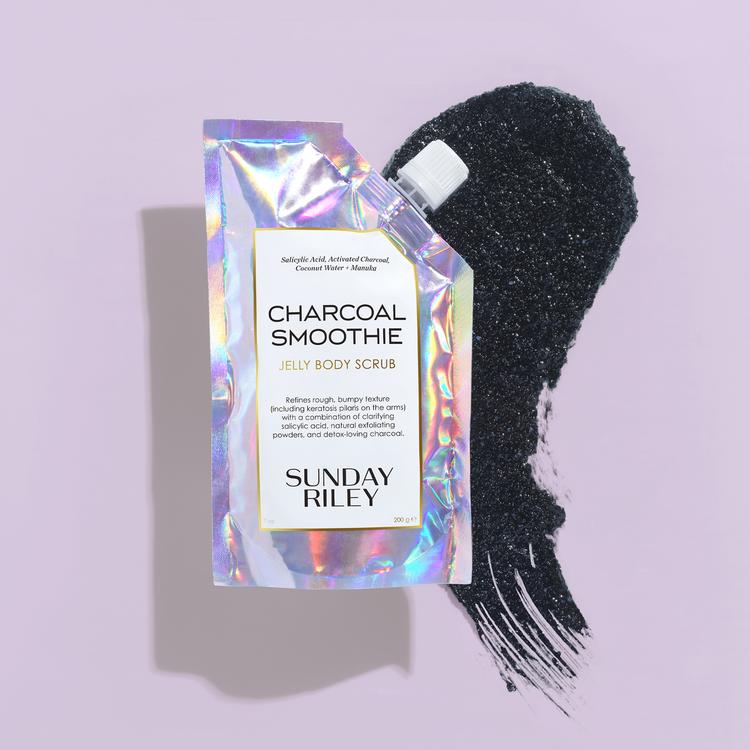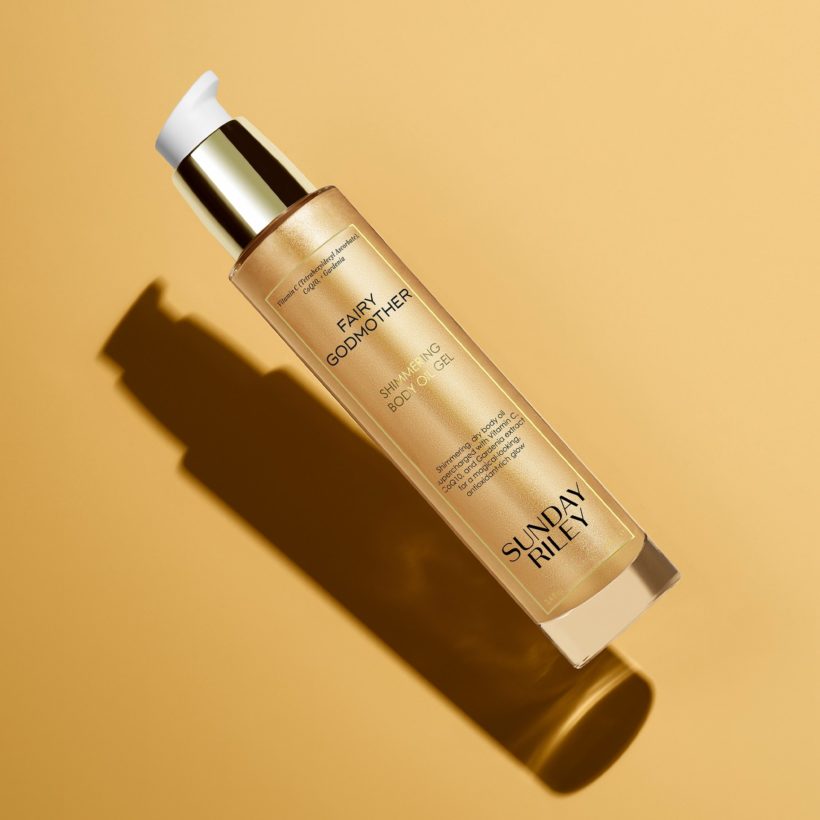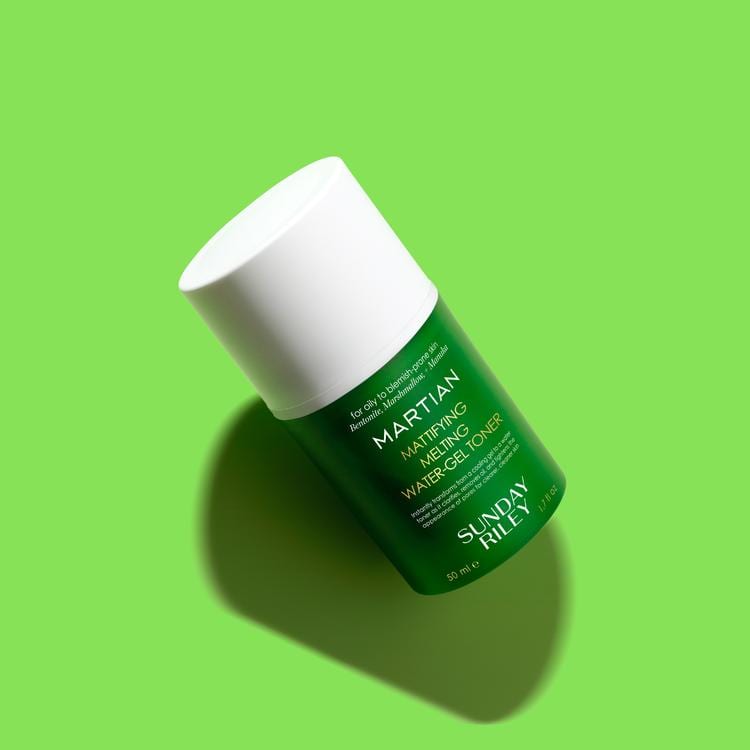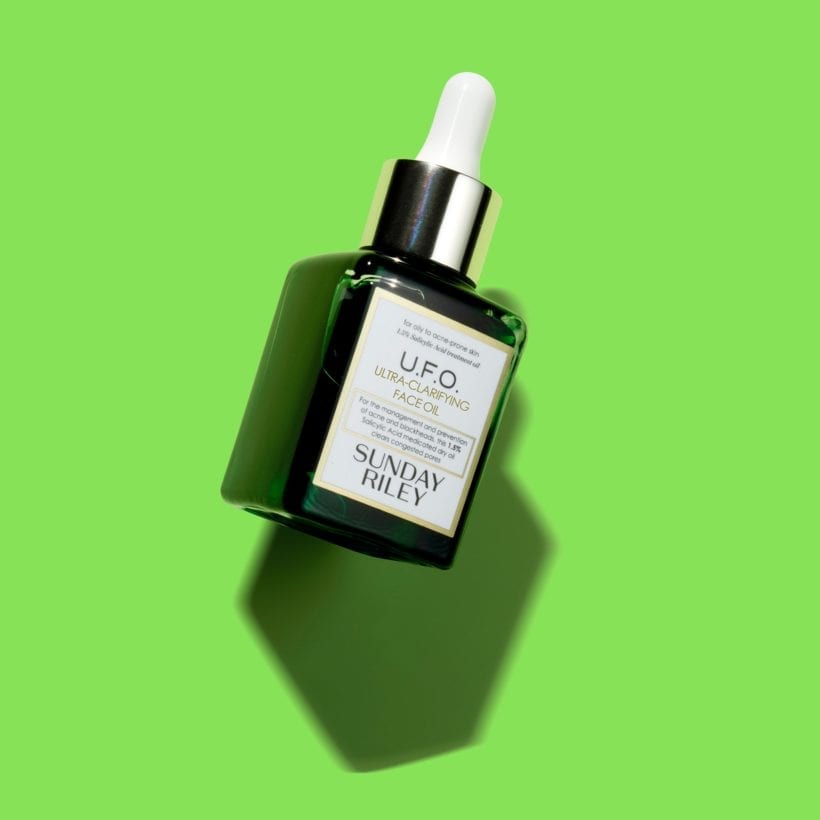When it comes to skin types, having dry skin can be one of the most frustrating. It shows up in symptoms like flaky, itchy and dull skin that is sensitive and feels tight. And on top of having dry skin, it can also be dehydrated — lacking water — which, while not a skin type, is another condition to deal with.
But when it comes to dry skin, improving the skin barrier — the outermost layer of the skin that protects and helps retain water and moisture — is the most important. The skin barrier is made of oils that bind the skin cells together and has about 10-30 percent water content. When that skin barrier is healthy, the skin is properly moisturized, supple, flexible and better adept at naturally shedding dead skin cells. And when it is not, it appears dull, flaky and rough. If it gets too dry, it can also be seen with red scaly patches, fine lines or cracks or even deep cracks that can bleed.
Read on to learn more about how to improve dry skin, and because we know you’re wondering, the best Sunday Riley skincare routines for dry skin.
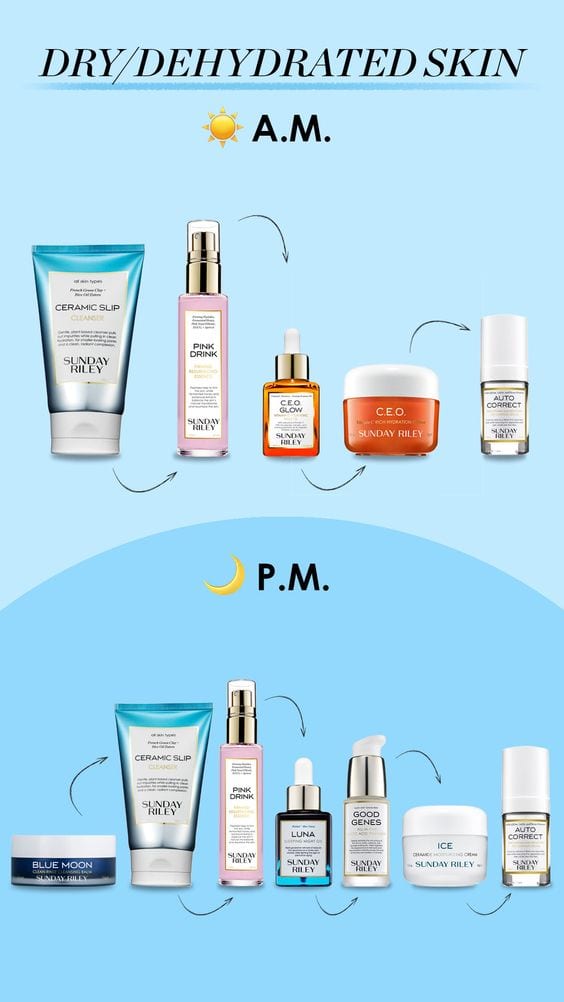
What Causes Dry Skin?
Ceramides are lipids that help form the skin barrier and help retain moisture — but some people’s bodies do not produce enough lipids, thanks to their genetic makeup, (and the number of lipids naturally produced by the body drops off as we age). This leads to drier skin. “The point of [ceramides] is to not just create a barrier, but also help the skin build up its ability to hold its own water,” says Nancy Samolitis, M.D., board-certified dermatologist at Facile Dermatology + Boutique in West Hollywood, CA.
The most common causes are over-washing
or washing with drying products
and not moisturizing.
People who experience dry skin can also experience conditions such as atopic dermatitis — a type of eczema — or ichthyosis vulgaris. These are associated with dry skin because they involve a defective skin barrier.
You can also blame your parents for your dry skin too. A mutation in the filaggrin gene, a gene responsible for making a protein called profilaggrin, which is an important protein in the skin barrier, can predispose people to having dry skin. In fact, 20-30 percent of people with atopic dermatitis have a filaggrin gene mutation, and it can be inherited.
As we age, skin also tends to get drier because the natural mechanisms that keep our skin healthy slow down with age. “People tend to be oilier when they’re teenagers because they have hormones stimulating their oil glands, but women’s hormones decline with age, so the lower the estrogen is, the drier the skin is,” says Samolitis.
Dry skin can also be a consequence of factors ranging from low humidity in the wintertime; central heating, which can result in drier air; prolonged exposure to water, especially hot water; or irritating or harsh products that strip the skin of its natural oils.
“The most common causes of dry skin [are] over-washing or washing with drying products and not moisturizing,” says Heidi Waldorf, M.D., a board-certified dermatologist at Waldorf Dermatology Aesthetics. “Soaps containing alkaline detergents can strip the important proteins and lipids that make up the brick and mortar of a healthy skin barrier.” But it is not just about topical products, any type of sun damage can affect the skin. “As your skin gets sun damaged, it’s not able to repair and protect itself as well,” says Samolitis.
What is the Best Skin Care Routine for Dry Skin?
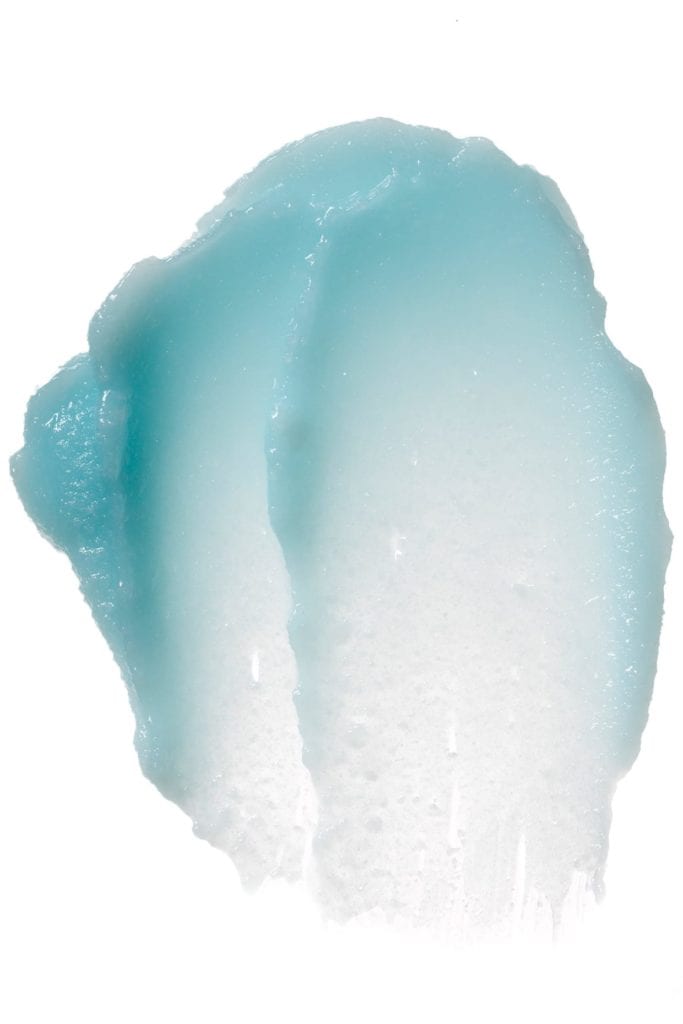
Limiting excess exposure to water on the skin for prolonged periods and irritating ingredients, and maximizing moisturizer is key to helping and restoring the skin barrier. “Moisturizers that contain glycerin, urea, hyaluronic acid or other humectants or alpha hydroxy acids, which exfoliate and improve hydration, are good choices,” says Waldorf. “The ideal moisturizer contains a humectant to pull moisture in like a sponge, an emollient to smooth the areas between skin cells and give a silky feel and an occlusive to seal in moisture.”
Serums containing hyaluronic acid are also a great choice, and they can work even better when combined with occlusive and emollient ingredients, which complement the humectant properties of hyaluronic acid. “Look for occlusive ingredients like petroleum or dimethicone to form a protective seal over the skin,” adds Joshua Zeichner, M.D., director of cosmetic and clinical research at Mount Sinai Hospital in New York City. “Also look for ingredients like natural oils that act as emollients to smooth rough cells and fill in cracks in the outer skin layers.”
Last but not least, be careful of cleansers. “There are cleansers that don’t strip the moisture out of your skin, but if you’re searching for that squeaky-clean feel, it’s removing some of your skin barrier,” says Samolitis. “Look for a creamy or oil-based cleanser.”
Sunday Riley AM & PM Skincare Routines for Dry Skin
Morning and evening dry skin routines are similar but with some key differences. In the morning, your job is to protect your skin from external factors it may be exposed to over the course of the day (like sun, pollution, or smoke) while also giving it a dose of hydration that will keep it moisture throughout the day (though you can always spritz with an essence when you feel your skin drying out).
At night time, you’re trying to give your skin as much moisture as possible while also addressing other skin concerns like fine lines, dark spots, or redness. Read on for Sunday Riley recommended routines for morning and evening.
AM:
- Wash your face. Start with a gentle cleanser like Sunday Riley Ceramic Slip. Bacteria can accumulate on your skin during the night, so even if your face doesn’t feel dirty or oily, it’s a good idea to start fresh.
- Use a toner or an essence, like Sunday Riley Pink Drink Firming Resurfacing Essence, which is hydrating, helps firm the skin, and balances the microbiome. Toners and essence set the stage for everything that comes next by rebalancing the skin’s pH level, allowing the products that come next to apply smoothly and penetrate the skin.
- Use a vitamin C product. Vitamin C is a hero product for fighting off free radicals skin comes into contact with during the day, which can help skin look brighter and less dry. Pick vitamin C products with super stable THD Ascorbate, which is more potent than standard ascorbic acid.
- Moisturize the face. Moisturizer helps add hydration to the skin and keeps water from escaping. A ceramide cream like Sunday Riley’s ICE helps keep the skin barrier healthy. Dry but acne-prone skin can benefit from an oil-free gel moisturizer, which sinks in quickly and works well under makeup. You can also double up on vitamin C by using Sunday C.E.O Vitamin C Rich Hydration Cream which uses a potent 5% vitamin C to brighten as it moisturizes.
- Add eye cream. The delicate area around the eyes needs moisture too as the skin there is very thin and if it’s dry it can show fine lines. Sunday Riley Auto Correct Eye Cream is hydrating, brightening, and depuffing.
- Use sunscreen. All skin, including dry, needs sunscreen daily (even if you’re not leaving the house). Sunday Riley Light Hearted Sunscreen helps defend against UV rays and blue light, and it has moisturizing products that sink into skin without leaving a cast.
PM:
- Use a cleansing balm. Double cleansing at night helps lift dirt, oil, makeup, and sunscreen off your face. Dry skin will benefit from Sunday Riley Blue Moon Clean Rinse Cleansing Balm, which is packed with calming, hydrating ingredients like cocoa butter, blue tansy, and German chamomile.
- Follow with face wash. When you use a cleanser after a balm, it can get to work addressing dryness and other skin concerns because your skin is already free of makeup and oil. Sunday Riley Ceramic Slip Cleanser is hydrating and leaves skin clean without feeling tight.
- Tone or use essence. Pat skin dry, then apply an essence like Sunday Riley Pink Drink Firming Resurfacing Essence. It uses fermented honey and botanical extracts to balance the skin’s microbiome, peptides for firming, and ceramides to help the skin’s moisture barrier stay balanced.
- Use an exfoliating treatment serum. Dry skin needs gentle exfoliation to help slough off dead skin. A product like Sunday Riley Good Genes uses AHAs to brighten skin and repair signs of scarring or sun damage, while leaving skin primed for moisturizer.
- Use a hydrating retinol. Sunday Riley Luna Sleeping Night oil is a dry-hydrating oil which works well for new or seasoned retinol users (a dry oil is one that sinks into skin quickly). It contains blue tansy and German chamomile essential oils which are calming and help reduce sensitivity and dryness. After that apply 5 Start Retinoid + Niacinamide Eye Serum.
- Moisturize. You don’t want to skip moisturizer on dry skin. Sunday Riley’s ICE is deeply moisturizing thanks to ceramides and beetroot and coconut extract which pull hydration into the skin.
Should Your Dry Skin Care Routine Change If You Have Sensitive Skin?
If you have dry, sensitive skin, you don’t need a totally different skincare routine than someone whose skin is less sensitive. However, there are a few things to be aware of. “It may be helpful to avoid any potentially drying or irritating ingredients like alcohol, clay, hydroxy acids and retinoids/retinols,” Dr. Hadley King, board-certified dermatologist says.
She adds that in some cases, proper formulations and usage of ingredients like hydroxy acids and retinoids can still be helpful, depending on your skin, but be sure to check in with your dermatologist first so you don’t accidentally make your dry sensitive skin feel worse.
It’s important for all skin types to use a gentle cleanser, but this is especially important for people with dry sensitive skin. You’ll also want to make sure your products are free of fragrance, which can be drying and irritating.
What’s the Best Skincare Routine to Get Rid of Dry Skin on the Body?
Dr. King says to treat dry skin on the body in a similar way as you would the skin on your face. This includes using, “gentle cleansers, limiting baths and showers (not too hot, not too long, not too frequent), using humidifiers, avoiding harsh detergents and moisturizing with moisturizers that contain humectants, emollients and occlusives.”
Those guidelines will help you avoid getting dry skin, but if you need to reverse the damage on skin that’s already dry, here’s a routine for getting rid of dry skin on the body.
- Exfoliate. Before you do anything else, gently exfoliate dead, dry skin away. You can use a dry brush, or a physical exfoliant like Sunday Riley Charcoal Smoothie Jelly Body Scrub. This creates a smooth base for everything that follows.
- Use a gentle soap in the shower. Avoid foaming cleansers, or those with added fragrances (this goes for shaving cream too).
- Apply moisturizer to your body while you’re still damp. Hyaluronic acid is a wonderful ingredient, but a lot of people make the mistake of applying it to super dry skin; to work most effectively, it needs a bit of moisturizer to bond to.
- Finish with a dry body oil. Using an oil after moisturizer will help lock in moisture and create an additional barrier between the skin and pollutants. Try Sunday Riley Godmother Shimmering Body Oil, which is packed with moisturizing ingredients, plus it gives the skin a little radiance.
What is a Good Dry Skin Care Routine If You Have Acne?
It can seem so unfair that some skin is both dry and acne-prone. But skin that isn’t making enough oil naturally may actually produce more oil to compensate. This coupled with dry, dead skin cells can clog pores and cause acne.
“Look for options that are non-comedogenic so they won’t clog pores and contribute to acne. Many great moisturizers that contain humectants, emollients and occlusives are non-comedogenic, so you don’t have to sacrifice moisturizing properties!” Dr. King says, and adds to avoid harsh detergents like SLS that can strip the skin of its natural oils.
Here’s a skincare routine for dry, acne-prone skin.
- Exfoliate a few times a week. Instead of a harsh physical exfoliant, try a chemical exfoliant like Sunday Riley Good Genes.
- Use a clarifying toner with hydrating properties like Sunday Riley Martian Mattifying Melting Water-Gel Toner.
- Follow with a gentle, hydrating moisturizer; if you’re worried about excess oil, try an oil-free moisturizer like Sunday Riley’s ICE.
- Lock in moisture with an oil. Yep, dry, acne-prone skin needs oil too, and you can look for one formulate for acne like Sunday Riley U.F.O Ultra-Clarifying Acne Treatment Oil.
What is the Best Diet for Dry Skin?
Although the relationship with diet and skin can be controversial, there are certain foods that can dry out the skin: coffee, alcohol and salt. “Salt and water try to live in balance in our bodies,” says Marisa Garshick, M.D., board-certified dermatologist at MDCS in New York “If you consume too much salt and don’t drink enough water, your body tries to take water from your skin, which leads to dry and dehydrated skin.” And both caffeine and alcohol are diuretics, which means they can increase the frequency of urination and eliminate too much water if consumed in excess.
And while there isn’t one diet best for dry skin, there is some thought that consuming a diet rich in omega-3s and omega-6s can help dry skin by strengthening the skin barrier. This includes fish like salmon, tuna, trout and olive oils. In fact, the skin is the first place to show signs of omega-3 deficiency because it is typically expressed in fatty acid deficiency, and it can manifest in rough patches on the skin, dandruff or chicken skin. Additionally, nuts are rich in vitamin E, which is known to protect the skin from oxidative cell damage and protect the skin barrier from external damage like UV rays.
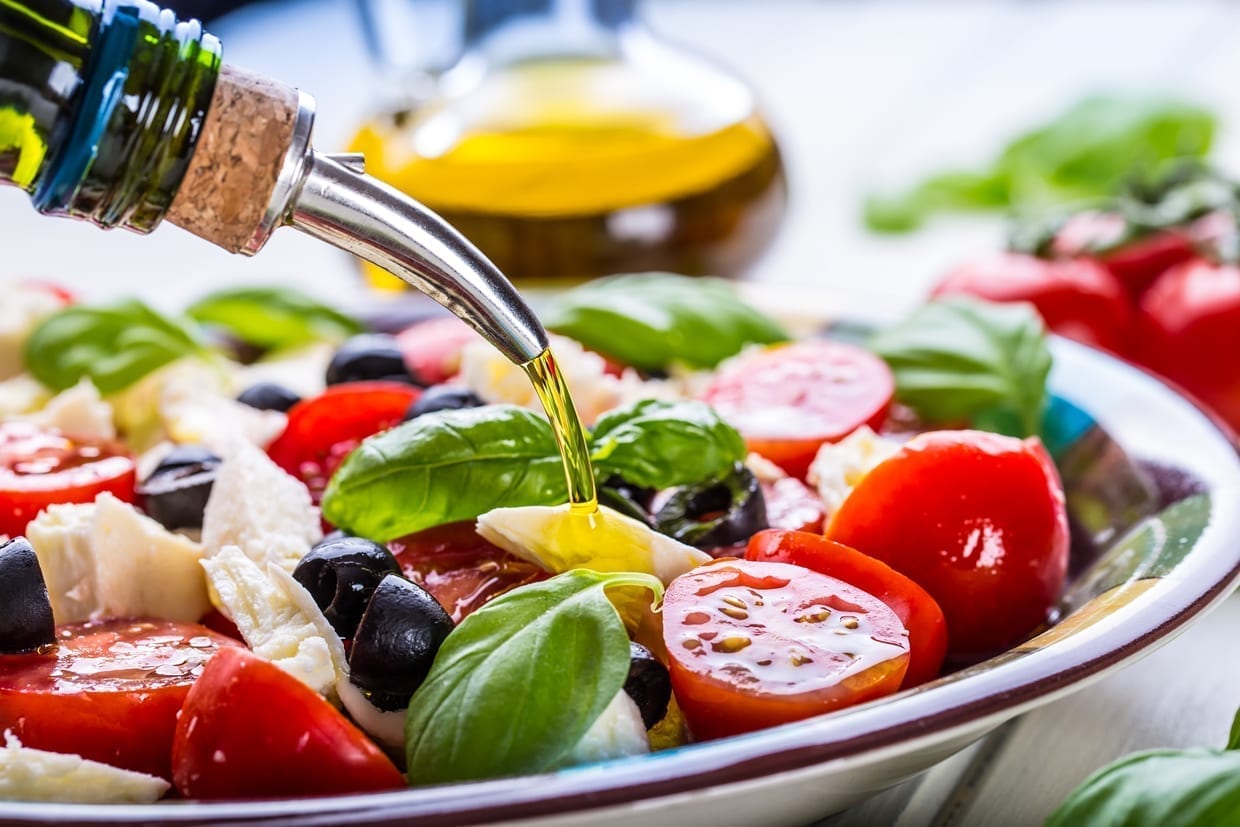
You may assume that you need to drink water to add hydration back to dry skin, there is a lack of research on how much drinking water really affects the outer layers of the skin. In fact, experts have found that this principle does not really apply to thirsty skin — once you are hydrated enough with the recommended water intake a day, eight 8-ounce glasses of water, more may not have any effect on your skin.
All in all, dry skin is a skin type that is mostly genetic and also includes a compromised skin barrier. You can definitely make an already existing condition worse with certain practices, but with a proper skincare routine, you can tackle dry skin before it hits. “Remember to follow these guidelines every day, all year round,” says Waldorf. “Don’t wait to feel dry.”
We only recommend products we have independently researched, tested, and loved. If you purchase a product found through our links, Sunday Edit may earn an affiliate commission.
